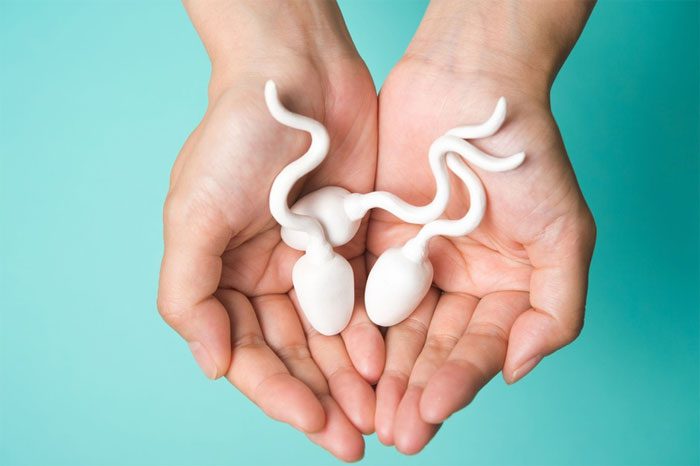A team of experts in the United States warns that synthetic phthalate chemicals found in plastic foam, toothpaste, shampoo, and perfumes contribute to tens of thousands of premature deaths each year.
A new study published in the journal Environmental Pollution on October 11 indicates that synthetic phthalate chemicals could be responsible for 91,000 to 107,000 premature deaths annually in the U.S. among individuals aged 55 to 64.
New Data on the Impact of Phthalates
CNN quotes Dr. Leonardo Trasande, a professor at the Grossman School of Medicine, New York University, and the lead author of the paper, stating: “We know that these chemicals are linked to heart disease, the leading cause of death. However, we have not concluded that exposure to these chemicals directly causes death.”
The reason the authors did not conclude a direct causal relationship between phthalate exposure and premature death is due to the biological mechanisms explaining the connection still being unclear. They plan to conduct further research on how this chemical affects hormone regulation and inflammatory responses in the body.
Nonetheless, Dr. Trasande emphasized that “this study adds to the negative database regarding the impact of phthalates on the body.”
The research involved over 5,000 adults (ages 55-64) and collected their urine samples from 2001 to 2010. Results showed that individuals with the highest concentrations of phthalates in their urine had a greater likelihood of dying prematurely from heart disease compared to the rest of the group. However, according to Eurekalert, high levels of toxins did not increase the risk of cancer-related deaths.
The study estimates that deaths due to phthalates could cost the U.S. approximately $40-47 billion per year.

Synthetic phthalate chemicals are commonly found in food containers and many everyday products.
Phthalates are a large group of chemicals often used to soften plastics. They are found in toys, wall coverings, detergents, lubricants, food packaging, pharmaceuticals, blood bags, infusion tubes, and food containers.
They are also used in personal care products such as nail polish, hairspray, toothpaste, aftershave lotion, soap, shampoo, and perfumes. The most commonly used phthalate in skincare products is diethyl phthalate (DEP).
The endocrine disruption affecting fetuses comes from chemicals in the products we use daily. These are referred to as endocrine-disrupting chemicals (EDCs). We are exposed to them through ingestion, inhalation, and topical application. In many cases, they are termed “ubiquitous chemicals” because it is challenging to find a product in the modern world that does not contain phthalates.
According to the U.S. National Institute of Environmental Health Sciences, even with intermittent exposure, phthalates can cause significant biological effects. Previous studies have shown that phthalates are closely linked to reproductive issues such as genital malformations, testicular atrophy in boys, reduced sperm count, and testosterone levels in adult men. They are also associated with obesity in children, asthma, cardiovascular issues, and other cancers.
Additionally, polystyrene has been classified by the International Agency for Research on Cancer (IARC) as Group 2B – a substance that may cause cancer in humans. Exposure to polystyrene can cause gene mutations, DNA damage, and an increased risk of cancer.
However, the causal relationship between polystyrene exposure and cancer remains controversial and unclear.

Men are facing infertility risks due to chemicals found in everyday products. (Image: Freepik).
How to Reduce Exposure to Toxic Chemicals?
Currently, the U.S., Australia, and some European countries have banned the use of microbeads in personal care and cosmetic products. However, legislation regarding the production and distribution of products containing microbeads has yet to be implemented in Vietnam.
In the U.S., the Food and Drug Administration (FDA) has prohibited the use of phthalate chemicals in plastic bottles and cups since 2012.
However, not all countries worldwide require and ensure this standard. Therefore, checking product ingredients can somewhat limit the use of microbeads.
Dr. Trasande advises that we can minimize exposure to phthalates and other hormone-disrupting substances (like bisphenol A/BPA – a chemical found in the lining of canned goods and paper receipts) through the following methods:
- Check the ingredients in products for Polyethylene, Polypropylene, Polyethylene terephthalate, Poly (methyl methacrylate), Polystyrene, and Polylactic Acid (PLA).
- Use a barcode scanning app to find out whether products contain microbeads, such as “Beat the Microbeads” (developed by UNEP).
- Limit the use of plastic as much as possible.
- Never put plastic containers in the microwave or dishwasher, where heat can break down the lining, allowing chemicals to be absorbed more easily.
- Cooking at home and reducing the use of processed foods can lower your chemical exposure levels.
- Use fragrance-free body wash, detergents, and cleaning products, prioritizing natural items.
- Use glass, stainless steel, ceramic, or wood for storing and preserving food.
- Buy fresh or frozen fruits and vegetables instead of canned and processed versions.
- Encourage frequent hand washing to remove chemicals from your hands.
- Avoid air fresheners and all plastics labeled with numbers 3, 6, and 7.
Why does Muay Thai have cheering music that sounds like… a funeral?
The story of the perfect yet most useless bridge in the world
Did hundreds of thousands of slaves really build the Egyptian pyramids?


















































